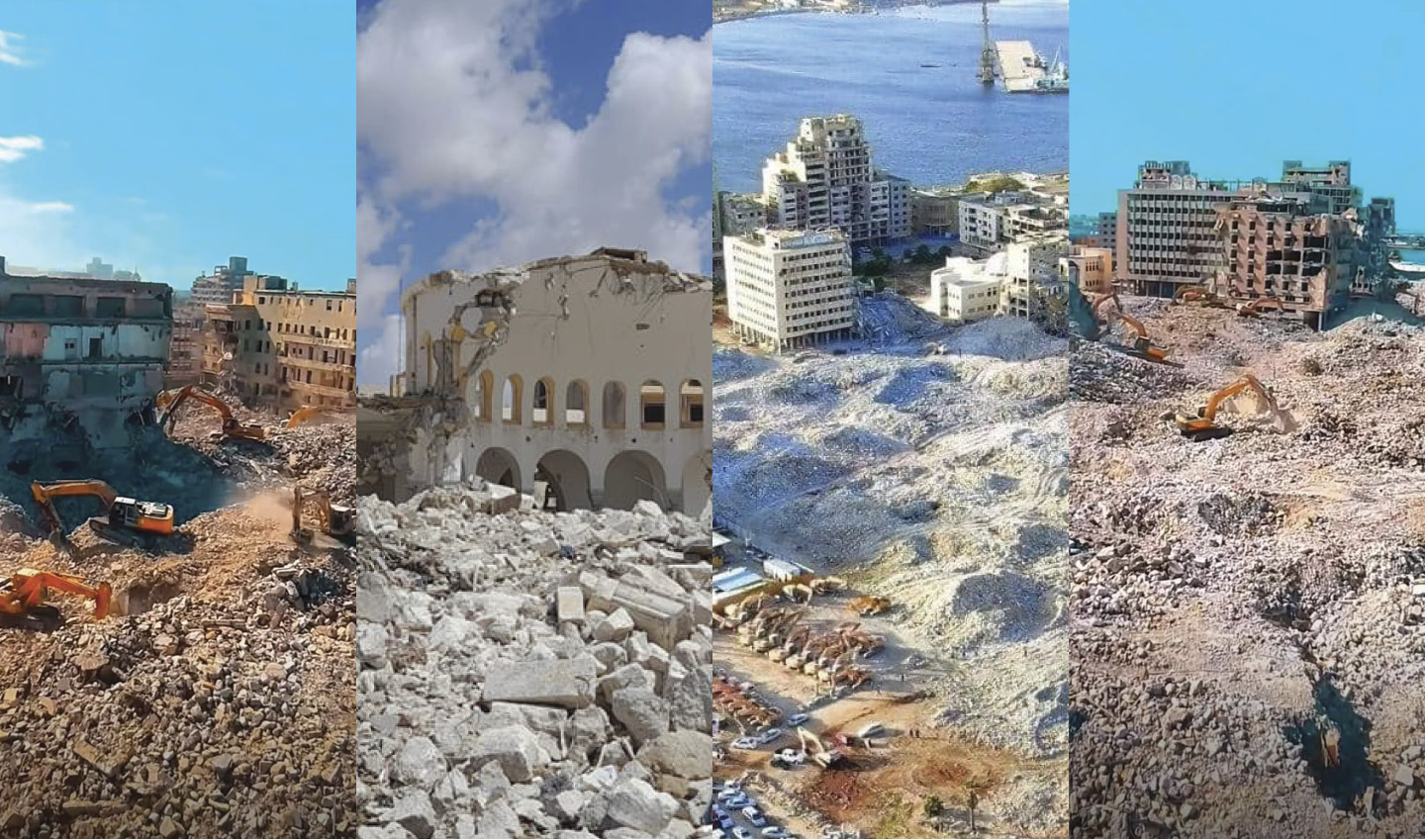Libyan Women's Platform for Peace Condemns Escalating Violations of Human Rights in Libya and Calls for Transparency in Reconstruction Efforts

The Libyan Women's Platform for Peace (LWPP) strongly condemns the escalating violations of human rights in Libya, the ongoing crackdown on civil society, and the shrinking of civil space.
We are deeply concerned about the arbitrary detention, forced confessions, and online defamation campaigns of activists, journalists, and human rights defenders which constitutes a clear violation of civil rights.
We are also deeply concerned about the forced evictions and displacement of citizens in Benghazi's “wast al-bilad” neighborhood—a gross violation of social and economic rights.
We believe that these violations amount to a crime against humanity. The forced eviction of citizens from their homes without proper legal procedures, compensation, or alternative housing options has had a devastating impact on the lives of those affected and is a clear violation of international human rights law.
Furthermore, we strongly condemn the recent demolition of war-damaged historic landmarks in Benghazi, which is an outright assault and a crime against cultural heritage. The Benghazi Antiquities Oversight Council has renewed its demand for a halt to the demolition, and we support this call.
We stand in solidarity with all those who have been affected by the current crisis and stress that during the reconstruction phase, a human rights-based approach is crucial for promoting peace and stability. This includes transparency, social cohesion, and participation, with a specific focus on women's inclusion.
We call on the Libyan authorities and the international community to take immediate action to address the situation.
▪ Respect the right to freedom of opinion, expression, and assembly, and stop the criminalization of human rights defenders.
▪ Take immediate action to address the humanitarian situation and provide support to those affected by the forced eviction. The authorities must ensure that those who have been forcibly evicted are provided with appropriate compensation and alternative housing options. They must also take steps to prevent similar violations from occurring in the future.
▪ Take immediate action to protect the country's rich cultural heritage for future generations.
Establish independent oversight mechanisms to monitor the reconstruction process and ensure accountability. This can include the appointment of an ombudsman or an independent commission to investigate complaints and abuse of power.
▪ Engage in public consultations and dialogue with communities to ensure that their needs and concerns are taken into account in the reconstruction process.
▪ Prioritize the use of open data and technology to provide citizens with access to information on the reconstruction process. This can include the use of digital platforms to share data, maps, and visualizations of the reconstruction process. Overall, transparency in the reconstruction process is essential for building trust between the authorities and citizens and ensuring that the reconstruction efforts are effective and accountable.
▪ We call on the international community to support efforts to promote the protection of social and economic rights in Libya. This includes advocating for policies and programs that promote access to adequate housing, healthcare, education, and other essential services. We urge the international community to hold the Libyan authorities accountable for their actions, and to work towards ensuring that the rights of all Libyan citizens are protected
